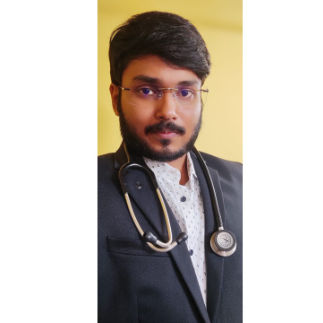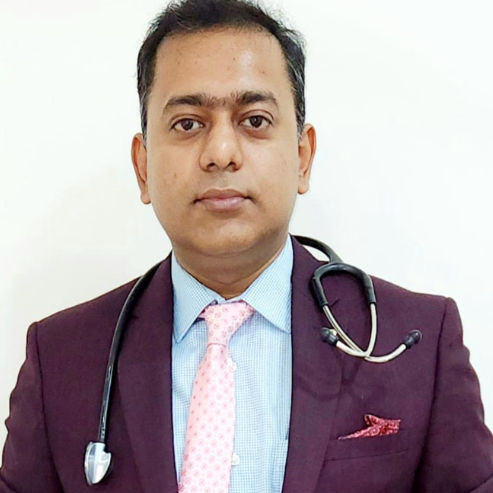Types of Ovarian Cancer Explained
know what ovarian cancer is, types of ovarian cancer, symptoms, causes, diagnosis and lifestyle tips to manage ovarian cancer.


Introduction
Ovarian cancer is a serious health concern affecting women worldwide. While it may not be as commonly discussed as breast or cervical cancer, understanding its different types is crucial for early detection and effective treatment. If you have been diagnosed with ovarian cancer or are at risk, this guide will help you learn about the various types, their symptoms, causes, and management strategies.
What Is Ovarian Cancer?
Ovarian cancer occurs when abnormal cells in the ovaries grow uncontrollably, forming tumors. The ovaries are part of the female reproductive system and produce eggs (ova) as well as hormones like estrogen and progesterone.
Ovarian cancer is often called the "silent killer" because symptoms may not appear until the disease has progressed. However, knowing the different types can help in early diagnosis and better outcomes.
Consult oncologist for Personalised Advice
Types of Ovarian Cancer
Ovarian cancer is classified based on where the cancer cells originate. The three main types are:
1. Epithelial Ovarian Cancer
- Most common type (90% of cases)
- What it is: Begins in the thin layer of tissue (epithelium) covering the ovaries.
Subtypes:
- Serous carcinoma (most common)
- Endometrioid carcinoma
- Mucinous carcinoma
- Clear cell carcinoma
Who is at risk? Women over 50, those with a family history of ovarian or breast cancer, and women who have never been pregnant.
2. Germ Cell Ovarian Cancer
- Rare (about 5% of cases)
- What it is: Starts in the egg-producing cells.
- Who is at risk? Mostly affects younger women and teens.
Subtypes:
- Teratomas (can be benign or malignant)
- Dysgerminomas (most common malignant type)
- Yolk sac tumors (aggressive but treatable)
3. Stromal Ovarian Cancer
- Rare (about 5% of cases)
- What it is: Begins in the ovarian tissue that produces hormones (estrogen and progesterone).
- Who is at risk? Can occur at any age but is more common in women over 50.
Subtypes:
- Granulosa cell tumors (most common)
- Sertoli-Leydig cell tumors (rare)
Symptoms of Ovarian Cancer
Early symptoms can be vague and easily mistaken for other conditions. Look out for:
- Bloating that doesn’t go away
- Pelvic or abdominal pain
- Feeling full quickly when eating
- Frequent urination
- Unexplained weight loss or gain
- Fatigue
- Changes in bowel habits (constipation or diarrhea)
If these symptoms persist for more than two weeks, consult a doctor.
Causes and Risk Factors
While the exact cause is unknown, certain factors increase the risk:
- Age (most cases occur after menopause)
- Family history of ovarian or breast cancer
- Genetic mutations (BRCA1 or BRCA2 genes)
- Hormone replacement therapy (long-term use)
- Endometriosis
- Never being pregnant
- Obesity
How Is Ovarian Cancer Diagnosed?
If ovarian cancer is suspected, doctors may recommend:
- Pelvic exam
- Ultrasound or CT scan
- Blood test (CA-125 marker)
- Biopsy (confirmatory test)
Early detection improves survival rates, so don’t ignore persistent symptoms.
Treatment Options
Treatment depends on the type and stage of cancer but may include:
- Surgery (removal of ovaries, fallopian tubes, or uterus)
- Chemotherapy (to kill cancer cells)
- Targeted therapy (for specific cancer types)
- Hormone therapy (for stromal tumors)
Lifestyle and Prevention Tips
While not all cases can be prevented, these steps may help reduce risk:
- Maintain a healthy weight
- Eat a balanced diet (rich in fruits, vegetables, and whole grains)
- Exercise regularly
- Avoid smoking
- Consider birth control pills (under medical guidance)
- Discuss genetic testing if you have a family history
When to See a Doctor?
If you experience persistent symptoms or have risk factors, consult a specialist. Early detection saves lives.
Final Thoughts
Ovarian cancer is complex, but understanding its types and symptoms empowers you to take action. Stay informed, listen to your body, and seek medical advice if something feels off. With advancements in treatment, many women successfully manage ovarian cancer and lead fulfilling lives.
Consult oncologist for Personalised Advice
Consult oncologist for Personalised Advice

Dr Devashish Tripathi
Radiation Specialist Oncologist
20 Years • MBBS, PLAB, MRCP (UK)- General Medicine, FRCR (Oncology), Certificate of Completion of Training (CCT)- Clinical Oncology
Delhi
Apollo Hospitals Indraprastha, Delhi

Dr. Harsh J Shah
Surgical Oncologist
15 Years • MS, MCh (GI), DrNB (GI)
Ahmedabad
Apollo Hospitals Gandhinagar, Ahmedabad

Dr. Gopal Kumar
Head, Neck and Thyroid Cancer Surgeon
15 Years • MBBS, MS , FARHNS ( Seoul, South Korea ), FGOLF ( MSKCC, New York )
Delhi
Apollo Hospitals Indraprastha, Delhi
(25+ Patients)

Dr. Rupam Manna
Radiation Specialist Oncologist
7 Years • MBBS MD(RADIO THERAPY), CCEBDM
Barasat
Diab-Eat-Ease, Barasat

Dr.sanchayan Mandal
Medical Oncologist
17 Years • MBBS, DrNB( MEDICAL ONCOLOGY), DNB (RADIOTHERAPY),ECMO. PDCR. ASCO
Kolkata
Dr. Sanchayan Mandal Oncology Clinic, Kolkata
Consult oncologist for Personalised Advice

Dr Devashish Tripathi
Radiation Specialist Oncologist
20 Years • MBBS, PLAB, MRCP (UK)- General Medicine, FRCR (Oncology), Certificate of Completion of Training (CCT)- Clinical Oncology
Delhi
Apollo Hospitals Indraprastha, Delhi

Dr. Harsh J Shah
Surgical Oncologist
15 Years • MS, MCh (GI), DrNB (GI)
Ahmedabad
Apollo Hospitals Gandhinagar, Ahmedabad

Dr. Gopal Kumar
Head, Neck and Thyroid Cancer Surgeon
15 Years • MBBS, MS , FARHNS ( Seoul, South Korea ), FGOLF ( MSKCC, New York )
Delhi
Apollo Hospitals Indraprastha, Delhi
(25+ Patients)

Dr. Rupam Manna
Radiation Specialist Oncologist
7 Years • MBBS MD(RADIO THERAPY), CCEBDM
Barasat
Diab-Eat-Ease, Barasat

Dr.sanchayan Mandal
Medical Oncologist
17 Years • MBBS, DrNB( MEDICAL ONCOLOGY), DNB (RADIOTHERAPY),ECMO. PDCR. ASCO
Kolkata
Dr. Sanchayan Mandal Oncology Clinic, Kolkata




